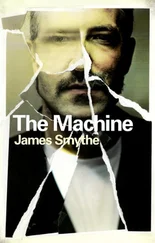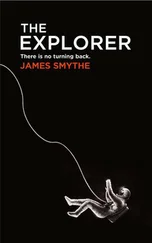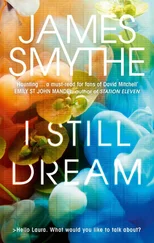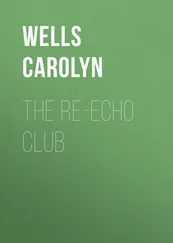‘You’re stronger than this,’ I say to myself, but then I try to breathe, and I cannot. That was my last. I hold it. My head aches, and my eyes feel dead inside my head. I look around, trying to count them all, and I lose track of where I am. I am not righted; I am not in any direction. I am everywhere, and everything. I think that I am dead, that I am gone.
Then: the glimmer. It has been here the whole time, above me, below me, all around me. It unfolds itself. My eyes are heavy, and I can barely keep them open, but I need to. Because here is what I was looking for this entire time. I was wrong, and Tomas was wrong, and none of us knew. We were unprepared, and we will always be unprepared.
It is a parcel, a rip, a hole and it unfolds itself into space and delicacy. Everything was so dark before. It peels backwards and inside it there is light: pure, absolute light; and I stare at it, up close, forcing myself to look. I tell myself that this isn’t real, but I want to believe it; that inside this anomaly there is something so pure that it is made so that I do not understand, and have no need to understand. Outside, rushing away from it, I can see veins, thin red and white lines, spooling off as branches and rivers, splayed and rushing. Living things have veins, and blood, and life in them. It makes sense to me that there are things we cannot understand; that there is life that we cannot conceive. Maybe things that we should not, as well; that are not for us to know. I know that this is one. I have seen things that no other man has seen. I have my answer to the question: the question of what the anomaly is. It is final, and it is my answer alone, and I think that nobody else will ever know. Perhaps that it okay. Perhaps that I have an answer is enough.
As I die, as I feel death coursing through my body, I look away from the heart of the anomaly, and down at the blackness below. It looks like I could fall: like there is nothing at all below me, and I am already falling, down and into forever.
Then it says, ‘I am here for you.’
And I say, ‘I know.’
I shut my eyes. It envelops me.
Thanks to my amazing editor Amy McCulloch and the team at Voyager UK; Diana Gill and Voyager US; Laura Deacon and Blue Door; and all the sales, marketing, publicity, design and everything else people that worked so hard on these books. Thanks also to Sam Copeland, my agent, and all at RCW.
Enormous thanks to Kim Curran, Will Hill, Tom Pollock, James Dawson and Nikesh Shukla, all of who made me want to be better at this.
Lastly, thanks to my family for the unending support.
THE MACHINE
by James Smythe
Available now
Here’s an exclusive extract from

She opens the door to a deliveryman, and the Machine, which has come in three parts, all wrapped in thick paper. Each of the parts is too big to get through the door.
We’ll have to try the window, the man says.
She shows him which one it is, along the communal balcony. It’s already at its widest, to let some air into the flat, to try and counteract the invasive heat from outside. Still not wide enough, so the men – the first has been joined by another from the van, having just heaved another thick cream-paper-wrapped packet the size of a kitchen appliance from the van, and left it leaning against the bollards – tell her that they’ll have to take the window out.
We’ve got the tools for it, this other man says.
Beth stands back and watches as they unscrew the bolts on the attaching arms, and then lift the whole sheet down. Others in the estate have stuck their heads out of their windows, or come out of their front doors to watch. Next door, the woman with all the daughters stands and watches, and her girls run around inside. The littlest one stands at the woman’s legs, clutching onto her skirt.
Gawpers, the first man says. Always wanting to know what we’re up to.
The deliverymen don’t know what’s inside the packages. They’re just paid to deliver them. Beth wonders if she’s going to be able to assemble it herself, or if she’s better off asking them for help. Slip them a fifty, they’d probably stand around with her for an hour and figure it out. She doesn’t know how easy it will actually be: if there will be wires, or if it’s just a case of plugging the pieces together. The man she bought it from said it would be simple. They struggle up the stairwell with the first piece, stopping to mop their brows. They still wear dark-blue overalls, in this weather, and their now-sweaty palms leave dark-brown prints on the paper wrapped around the Machine’s pieces. The first piece makes it through the window maw, twisted in the frame as if this is one of those logic games. Manipulate the pieces.
Right, the first man says. Where do you want them?
In the spare bedroom, Beth tells him. She indicates it through, pointing the way past the living room. The room is light and airy – or as airy as it can be nowadays – and decorated like it’s a master, with an expensive-looking bed. Wallpaper not paint, with a different dado rail, a thick yellow colour contrasting with the impressed patterned cream of the walls. The room looks untouched, like nobody’s ever lived in it. The bed is made, the sides of the duvet tucked in below the mattress. There’s potpourri on the dresser in a simple golden metal dish, but not enough to stop the faint smell of dust. The sunlight, through the window, hits the dust, a cone of it floating in the air.
Anywhere?
By the back wall. I’ve cleared a space for it. She rushes past, ducking down in front of him, making sure that the space is still clear, then helps him lower the first package.
What the bloody hell is this thing? the man asks.
Exercise equipment, Beth tells him. That’s an answer suggested by the man who sold the Machine to her. In his email, he told her that he would write that on the form for the collection, and on the customs form. He was French, and Beth had had to translate his email using the internet, only the occasional word making her stumble. Still, she got the gist.
Jesus, the deliveryman says as he puts it down – the French seller has marked the packages with arrows, showing which way up they’re to be carried and stored – and stretches his back. He’s wearing a thick black harness around his waist, which he pats. Lifesaver, he says. They make us wear them now, for the insurance. We take them off in the van, when we’re done. Fucking hot though, wearing this along with the rest of the get-up. He stretches again, more exaggerated this time. His friend shouts from the window, where they see he’s positioned the next piece – this one long and thin at one end, bulbous and clunky at the other, meant to stand tall, taller than any of the people in the flat – halfway through the window. He’s straining to hold it up. Beth sees that the arrows (marked with thin, shaky writing that says THIS WAY UP) are horizontal. She wonders if that’ll affect it in any way.
Come on, the man says, can’t hold it. The other one takes the inside end and they work it through.
Same place? the first removal man asks. Beth nods, and then he asks for something cold to drink, which she prepares – iced tea, in the fridge – as they both struggle with it through the tight doorways and narrow corner into the room. She’s got two glasses on the side ready by the time that they’re done with that piece, but the first man – clearly the superior of the two, older and wiser and with a company t-shirt on under his rote blue overalls – waves them aside. Last piece, then we’ll have them, he says. Beth watches them both at the van, which they’ve parked at the bottom of the estate, by the bollards that prevent cars driving right up to the buildings themselves. They look at the last piece, which is nearly the same shape as the first, only somehow wider, more unwieldy, and they both laugh. She knows that they’re talking about what it is. Speculating. They’ll know it’s not exercise equipment. They’ve handled exercise bikes before. They do this for a living, and the wool can’t be pulled over the eyes of those who will know the weight and shape of an exercise bike or a rowing machine. She watches as they finally heave the last piece up between them, up the stairwell and into her flat through the window space. Their sweat drips from their heads and onto the concrete slabs, and the Machine.
Читать дальше
Конец ознакомительного отрывка
Купить книгу













